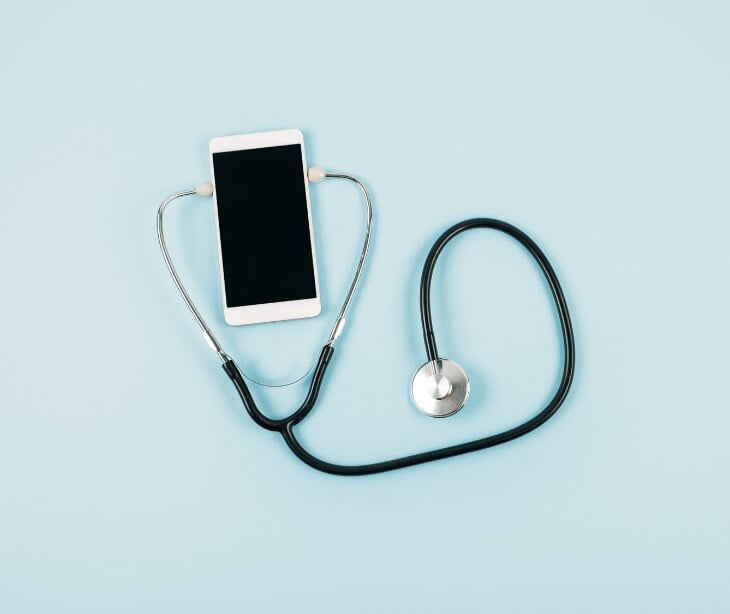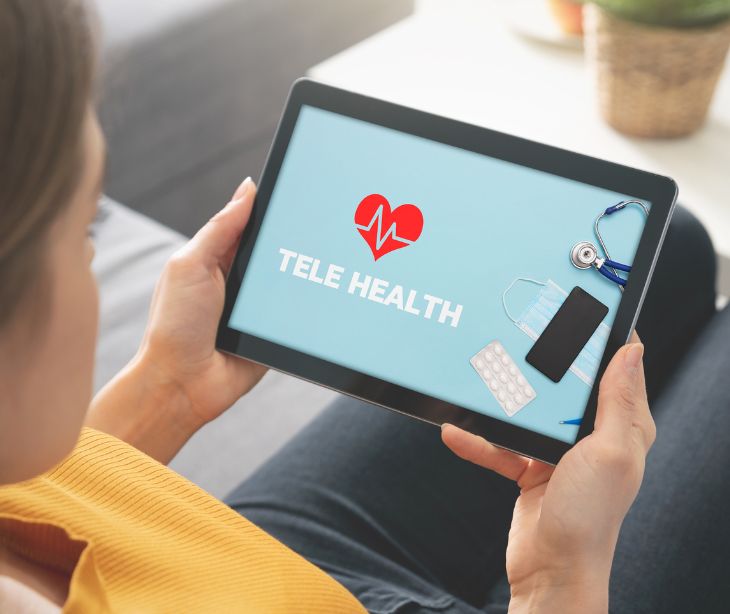
The rise of telehealth has presented new challenges for organizations that previously saw patients in person. To be HIPAA compliant, mental health organizations must maintain a robust telehealth security system, including using protected WiFi and strong passwords, holding a confidential meeting space, and verifying patient identity.
Mental health and telehealth
According to a study from the Journal of Psychiatric Research, mental healthcare providers have been exploring remote treatment options for over six decades. Providers use videoconferencing for therapy, evaluations, and medication management, often supplementing in-person treatment with telehealth services. Telehealth greatly reduces patient-incurred costs and travel time, enhancing the accessibility of mental healthcare for individuals in rural areas. Additionally, some studies suggest that remote treatment may be superior to in-person consultations for certain patients.
As mental health professionals transition to telehealth, there can be increased privacy and security vulnerabilities, especially for practices without a current process for telehealth in place. Without the proper security protocols, organizations could face difficulties with HIPAA compliance.
HIPAA compliance in telehealth
HIPAA establishes guidelines for safeguarding protected health information (PHI) that apply to covered entities, including mental health professionals.
- To achieve HIPAA compliance, therapists must choose a telehealth platform that meets HIPAA security standards, including encryption protocols and other security measures to protect PHI from unauthorized access or data breaches.
- Additionally, therapists must sign a business associate agreement (BAA) with the chosen platform, ensuring the platform takes responsibility for safeguarding patient information according to HIPAA requirements.
Securing your WiFi network
Securing the WiFi network is one of the first steps to maintaining HIPAA compliance during telehealth sessions. Ensure that the practitioner’s router is password protected, and if it is an older model, consider upgrading to WPA2 (Wi-Fi Protected Access 2), the current industry standard. Regularly check your router settings to verify the strength of your network security and change the default password if needed.
Related: What is WPA?
Conduct telehealth sessions in private locations
To maintain patient confidentiality, conduct telehealth sessions, calls, and video conferences in private locations. Find a dedicated space in your home to have uninterrupted conversations without the risk of being overheard. Privacy protects patient confidentiality and also enhances the professionalism of the therapeutic relationship.
Verifying patient identity
When contacting patients by phone, verify their identity before discussing sensitive information. Although most patients have cell phones, confirming that you are speaking to the intended recipient is prudent. Take a moment to verify the patient's identity and ensure you are not inadvertently disclosing confidential information to the wrong person.
Read more: Case study: Common data sharing practices among telehealth services
Digital documentation
Working from home presents an opportunity to transition to a paperless practice and minimize the need for printing. Shredding documents securely at the office may not be feasible at home, so it's best to avoid printing whenever possible. Embrace digital documentation and work with electronic records to reduce the risk of physical documents falling into the wrong hands.
Password security
While web browsers offer the convenience of saving passwords, practitioners should avoid saving sensitive login credentials. Instead, consider memorizing important passwords or writing them down and storing them in a secure location. Additionally, ensure that your computer or tablet has a strong password and multi-factor authentication as an extra layer of security.
See more: 5 Steps to improve password security in healthcare
Keep your devices up to date
Regularly updating your computer, tablet, and other devices is needed when maintaining security. Updates often include security patches and improvements that help protect against vulnerabilities. Enable automatic updates whenever possible to ensure devices run the latest software versions.
Run anti-virus and malware programs
Protecting your devices from viruses and malware maintains the security of patient data. Use reputable anti-virus and anti-malware software and ensure it is set to run regular scans. Most operating systems have built-in security features, so verify that they are enabled and functioning correctly. Regularly update and maintain these programs to safeguard against emerging threats.
FAQs
How does HIPAA apply to telehealth in mental health therapy?
HIPAA applies to telehealth in mental health therapy by requiring the secure handling of protected health information (PHI) during remote consultations. It mandates the use of secure communication platforms and the implementation of privacy safeguards to protect patient data.
Can mental health professionals use popular video conferencing platforms for telehealth while remaining HIPAA compliant?
Mental health professionals should use telehealth platforms designed for healthcare that offer HIPAA compliant encryption and security features. While some popular video conferencing platforms have business associate agreements (BAAs) for their healthcare-specific services, verify their compliance with HIPAA regulations.
How can mental health professionals ensure patient consent and privacy in telehealth sessions?
Before telehealth sessions, mental health professionals should obtain patient consent for remote treatment and clearly explain the privacy measures in place.
What are the best practices for ensuring HIPAA compliance in mental health telehealth?
Best practices include using HIPAA compliant telehealth platforms, conducting regular risk assessments for telehealth technology, training staff on telehealth security and privacy protocols, and implementing policies for the secure transmission and storage of patient data.
Learn more: HIPAA Compliant Email for Mental Health Professionals
Subscribe to Paubox Weekly
Every Friday we'll bring you the most important news from Paubox. Our aim is to make you smarter, faster.



